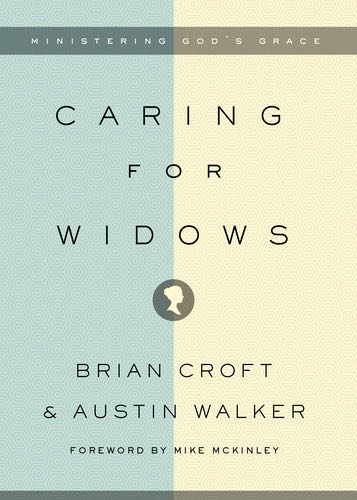James notes something quite important about the effects of faith:
27 Religion that is pure and undefiled before God, the Father, is this: to visit orphans and widows in their affliction, and to keep oneself unstained from the world. James 1
James is merely applying the message of the Old Covenant to the church. These priorities are there. Protestants have typically focused on the last of these, sanctification. In the 19th century a number of orphanages were built by leading figures like Charles Spurgeon and George Mueller. In recent days we’ve seen the focus on adoption arise, in part because of this verse.
But what about widows? We haven’t focused on that very much which is to our detriment in my opinion. Though I’ve been a pastor since 1998 and a number of congregants have become widows in that time, I surely haven’t cared for them as well as I ought to have. The subject really isn’t talked about much.
Recently our men’s study went through 1 Timothy and we spent a night talking about this. At about the same time one of our members became a widow. There just don’t seem to be any books on caring for widows.

Thankfully Crossway has just released Caring for Widows by Brian Croft and Austin Walker. It is not a very long book, and it is filled with very short chapters. In this way it can quickly help pastors, deacons and ministry leaders know why they should care for widows and provide some practical ways of caring for the widows in your midst.
The first section is written by Austin Walker. Austin focuses on the precepts, principles and examples found in Scripture to communicate that widows should be cared for and how they were cared for. As a result, he focuses on God’s love and concern for widows since they were among the most vulnerable members of society. Jewish law made provision for them (tithing, gleaning, Levirate marriage) so that poverty would not destroy them or tempt them to use sinful means to survive. God demanded justice and compassion for the widows, and if they failed He would hear their cries and bring curses on Israel.
Austin also points us to God’s work to provide for particular widows. There is a chapter on Ruth and Naomi. He also reminds of of the widows that Elijah and Elisha ministered to in miraculous ways to demonstrate God’s loving compassion. Jesus also cared for widows, raising one’s dead son and making sure His own mother would be cared for prior to His death. We also see how the early church provided for widows in the book of Acts.
As noted above, the chapters are short. Walker doesn’t waste much time. There is no fluff there, but he does a fairly thorough job making his point. Any church officer or ministry leader can’t avoid his point: we need to care for the widows that God has placed in our care.
Brian Croft writes the second section of the book which focuses on some particular ways we can and should care for widows. These include the private ministry of the Word, equipping the congregation to come along side them, what it means to visit in various situations (home, hospital and nursing home),writing notes and cards, and celebrating holidays with them.
Their needs are not simply financial. He could have spent a little more time on this, at least in helping churches evaluate which widows need financial assistance or working them through the process of downsizing so they can care for themselves. Ideally, husbands provide for their spouses through savings and life insurance. Here in America, Social Security provides some benefits. But these may be insufficient should health problems arise. The family should care for them, and then the church.
The church needs to show them compassion even if they are not helping them financially. They have emotional, relational and practical needs that used to be met by their husbands which are no longer being met. Particularly if family is not nearby, the church becomes important in meeting these needs. It could be as simple as a deacon coming by to change A/C filters to fixing leaky faucets or other repairs. It is also a ministry of friendship by men acting like sons to her, or younger women acting like daughters.
In terms of visitation, I was a little surprised by how short his hospital visits were. I’ve often found people in the hospital to be quite bored and willing to visit unless they were in great pain or other distress. He is right in that the dynamics change when someone is in the hospital. But whenever we visit it is important to include the ministry of the Word and prayer.
There are also times when a widow’s loneliness is more profound: anniversaries, holidays and birthdays. These are times to send notes and cards reminding them that they are loved by God and you.
He “caused the widow’s heart to sing for joy” (Job 29:13). That should be the aim of the church in ministering the grace of God in the Lord Jesus Christ to widows. It is not only the ministry the church should undertake, but it is an integral part of that biblical religion which James defined as “pure and undefiled … before God and the Father” (James 1:27).
Taking care of the widows among us does not make for a dynamic program. But it is an important part of church ministry. This little book helps equip us for this important ministry. This is a book pastors, deacons and leaders should read, and implement.
